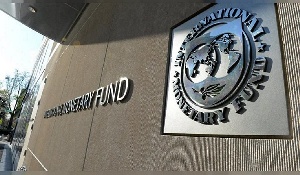The International Monetary Fund (IMF) says Ghana’s current inflation target range of 8±2% is relatively high compared to its peers in sub-Saharan Africa (SSA).
This is clearly attributed to its high-interest rates on the continent.
Ghana’s yield of about 14 and 15% on Treasury Bills and 24% average lending rate is among the highest in SSA.
The higher inflation rate means the prices of some goods and services are relatively high in the country compared to many African countries.
Inflation in Kenya is about 5±2.5 and that of South Africa is about 3 – 6%.
In Uganda, inflation is hovering at around 5.0%.
This also translates into lower interest rates of between 6.0 to 10% in the aforementioned countries.
Neighbouring Nigeria has about 12% yield on T-Bills and about 19% interest rate on loans.
The Bretton Wood institution, in its recent assessment of the Ghanaian economy post the IMF programme, said: “If inflation remains below or close to target, it may be appropriate to adopt a lower target over the medium term, provided that this change is carefully implemented and communicated.”
It added that coordination with the fiscal policy would also be key, including to ensure that a lower target and related tightening of money supply would not crowd out private sector credit.
It also emphasised that the end of monetary financing, supported by a Memorandum of Understanding (MoU) between the Ministry of Finance and the Bank of Ghana (which remains in effect through 2020), contributed to a significant reduction in inflation. This allowed a normalisation of monetary policy, with the Monetary Policy Committee lowering the policy rate to 16 per cent in January and keeping the rate unchanged since then.
Inflation is projected at 7.8 per cent by the end of December 2019 based on the rebased CPI series, with the depreciation of the cedi and increases in utility tariffs causing an uptick in non-food inflation.
Meanwhile, food inflation is expected to slow down.
But in November 2019, inflation increased by 0.5 percentage points to 8.2%
Business News of Friday, 27 December 2019
Source: classfmonline.com













